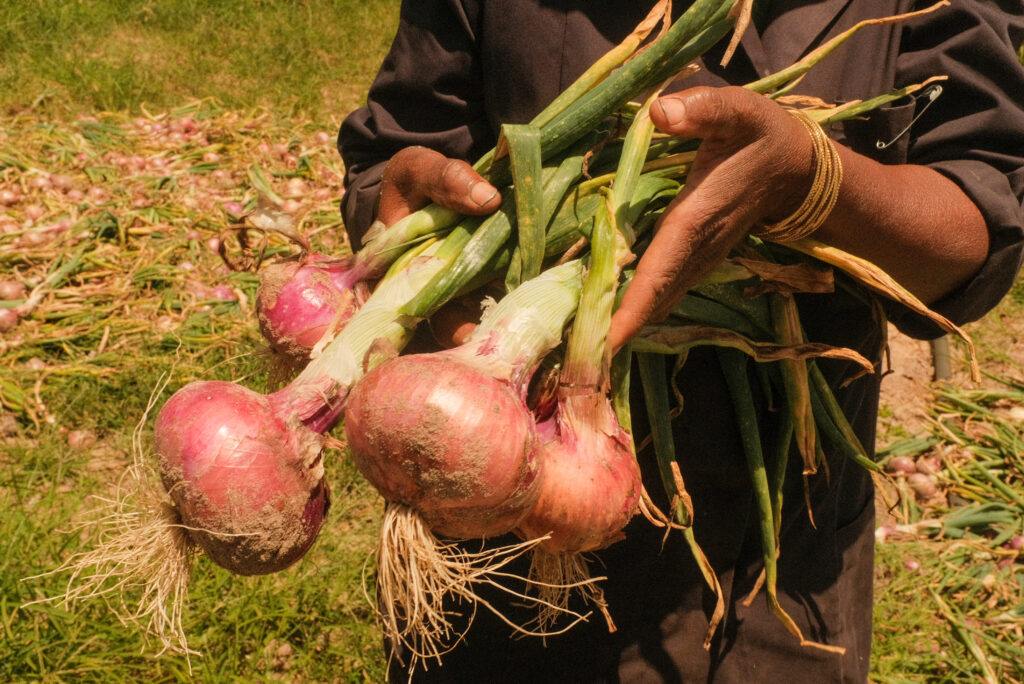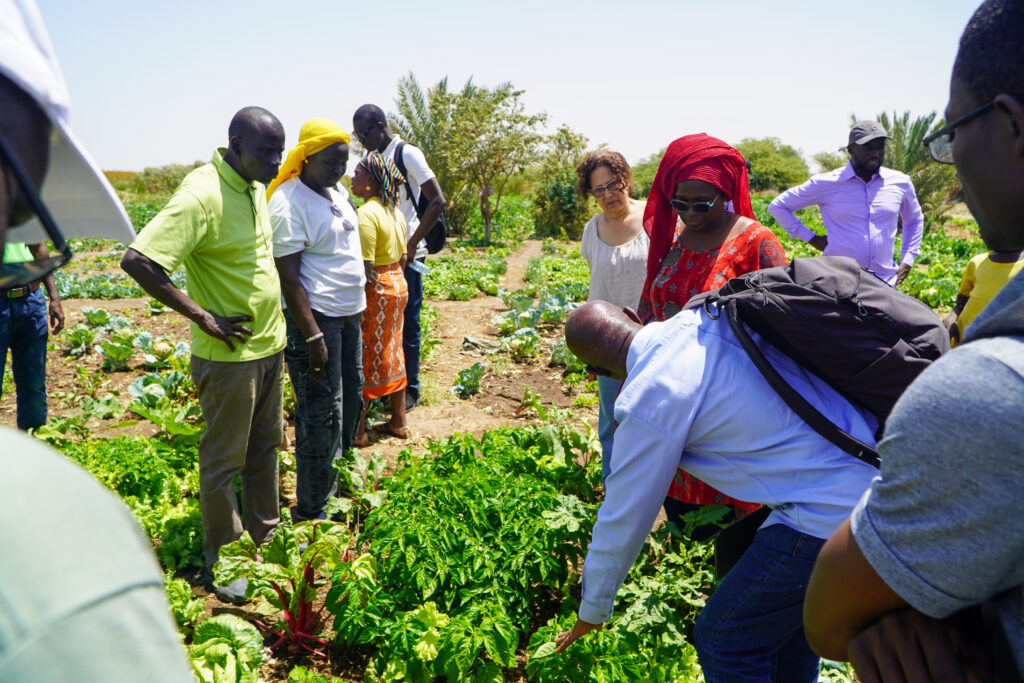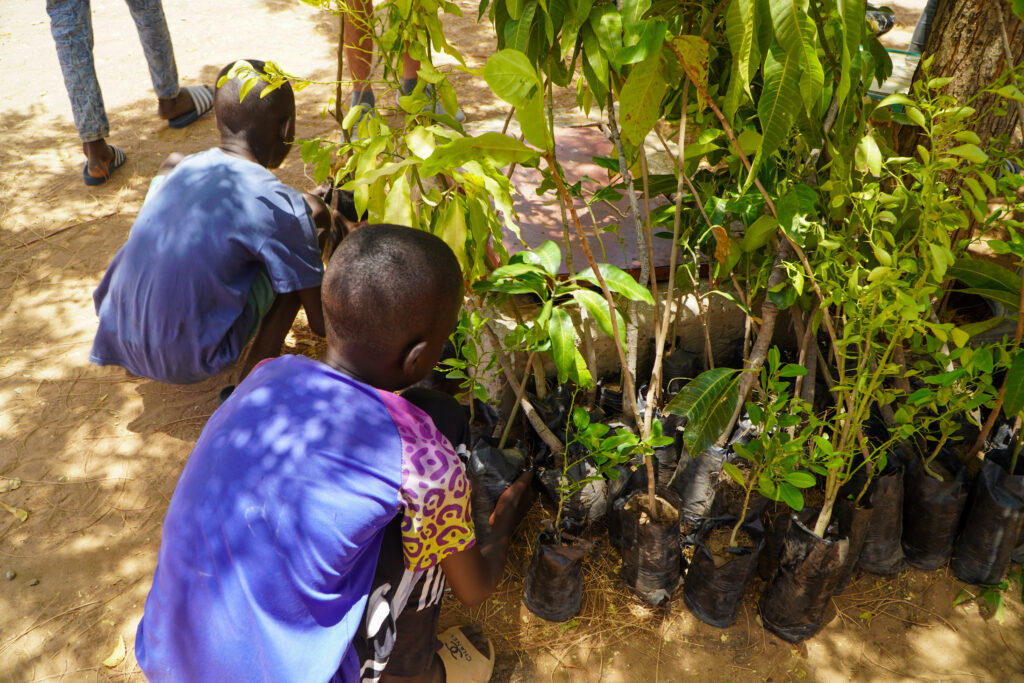Women and Youth Driving Sustainable Agriculture in Senegal
In Senegal, the seeds of the future are in the hands of its women and youth.
Senegal, home to almost 19 million people, is particularly vulnerable to climate change as a result of high coastal exposure, and the country’s heavy reliance on natural resources. As of 2023, 50% of the population lives in rural areas and 70% of them rely on agriculture for their livelihoods. Land degradation already affects nearly 45% of Senegal’s territory, further intensifying the pressures on farmers facing unpredictable weather patterns and limited irrigation infrastructure.
Sustaining the agricultural sector
Within this complex context, women and youth stand at the frontline of food production and at the heart of the country’s potential for agricultural transformation.
Women are fundamental to rural economies and household food security, making up nearly 70% of Senegal’s agricultural workforce and producing 80% of the country’s food. Despite this contribution, they continue to face systemic barriers, including limited access to land, resources, financial services, and agricultural extension services. Their roles are too often undermined by gender inequalities, such as discriminatory social norms and legal frameworks that restrict their rights, autonomy, and opportunities. As a result, women have less access to resources, including land, finance, education, and essential farming inputs.
Women are fundamental to rural economies and household food security, making up nearly 70% of Senegal’s agricultural workforce and producing 80% of the country’s food.
At the same time, Senegal is home to a large and growing youth population. According to UNICEF, today’s generation of young people is larger than ever before, a powerful demographic force that holds the potential to shape the country’s future. Educating and equipping youth with sustainable farming skills is then essential not only for securing rural livelihoods, but also for addressing long-term challenges such as climate adaptation and food system resilience. One of the biggest challenges is their insufficient access to knowledge, information, and education. It is therefore important to improve young people’s access to them and to incorporate agricultural skills into rural education, as rural youth may not have the skills to take part in the green economy.

Another challenge is the limited access to financial services, as most providers are hesitant to support rural youth due to factors like insufficient collateral, low financial literacy, and other barriers. Promoting financial products catered to youth, mentoring programmes, and start-up funding opportunities could then help remedy this issue.
Practical strategies for empowerment
Empowering women and youth in agriculture means improving food security, fostering inclusive economic growth, and building more resilient food systems. The path towards a sustainable agriculture in Senegal lies in empowering women and youth, not only as farm workers, but as decision-makers, innovators, and leaders.
The path towards a sustainable agriculture in Senegal lies in empowering women and youth, not only as farm workers, but as decision-makers, innovators, and leaders.
To do so, training programmes tailored to their needs are fundamental. Workshops on composting, seed selection, and water management can equip women and young farmers with practical tools to cope with climate risks. Similarly, initiatives that introduce to agroecological methods, digital tools for farming, and sustainable business models can help young people see a future for themselves in agriculture.

To overcome these challenges, it is essential to create an enabling environment where women and youth can truly thrive in agriculture. This means advocating for the effective implementation of existing laws and policies that grant young people access to land and ensuring the rehabilitation and fair distribution of agricultural land for their use. Equally important is investing in agroecology training centres and programmes specifically designed for women and youth, offering not only technical knowledge but also leadership and entrepreneurial skills.
Success stories
There are already some inspiring stories. In May 2025, Senegal officially launched the second phase of the PAVIE project – (Projet d’appui et de valorisation des initiatives entrepreneuriales des femmes et des jeunes) at the Grand Théâtre National in Dakar. The project’s goal is to create jobs, “empower women and youth, and advance Senegal’s food sovereignty under the “Sénégal 2050” national development strategy”. During the first phase, the initiative supported 24,000 entrepreneurial initiatives and stimulating the creation of over 93,000 jobs. In the next chapter, the aim is to introduce key improvements, including complete digitalisation of all business processes, enhanced territorial support through localised mechanisms, and focused economic empowerment in underserved areas. In doing so, PAVIE is “strengthening agricultural, livestock, and fisheries, and fostering innovation.
The CIRAWA project, dedicated to developing new agroecological-based practices that build on existing local and scientific knowledge to help create more resilient food supply chains in West Africa, offers another example. Since its launch in 2022, the project has prioritised women and youth, with many awareness-raising and training opportunities focused on promoting sustainable agriculture practices.

During a weeklong event in Saint-Louis, Senegal, in April 2025, CIRAWA organised an agroecology awareness-raising campaign for young learners. This event aimed to engage youth and provided participating students with the opportunity to get hands-on experience with sustainable farming techniques and highlighted the importance of healthy soils. The project also organised a visit to Jardin des Femmes, a women-led garden initiative established in the early 2000s. The visit highlighted the role women play in agriculture and provided a space to discuss challenges and the need for more sustainable farming practices to build resilience.
Women and youth at the heart of change
Building a sustainable agricultural sector requires that the role of women and youth be put in the centre, and given Senegal’s climate vulnerability, climate-resilient agricultural practices need to be increasingly employed. As Senegal continues to stimulate entrepreneurial growth, ensuring that women and youth have access to tools and resources to support locally-adapted sustainable agricultural practices now can have an impact on farms across the country. And in doing so, the country can work to build resilience to climate change while strengthening the local economy. In this context, training and education that offer practical experience in implementing climate-resilient farming techniques are essential not only to safeguard the sector but to enable it to thrive despite growing environmental challenges.